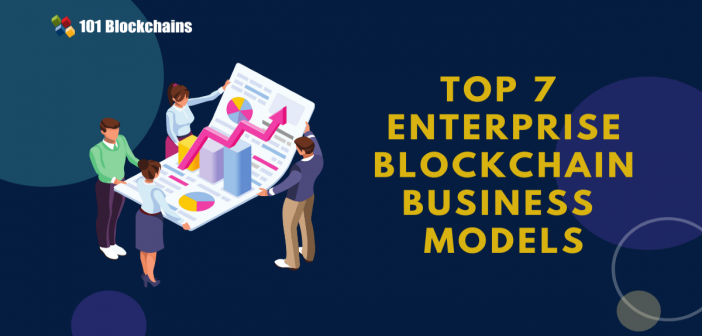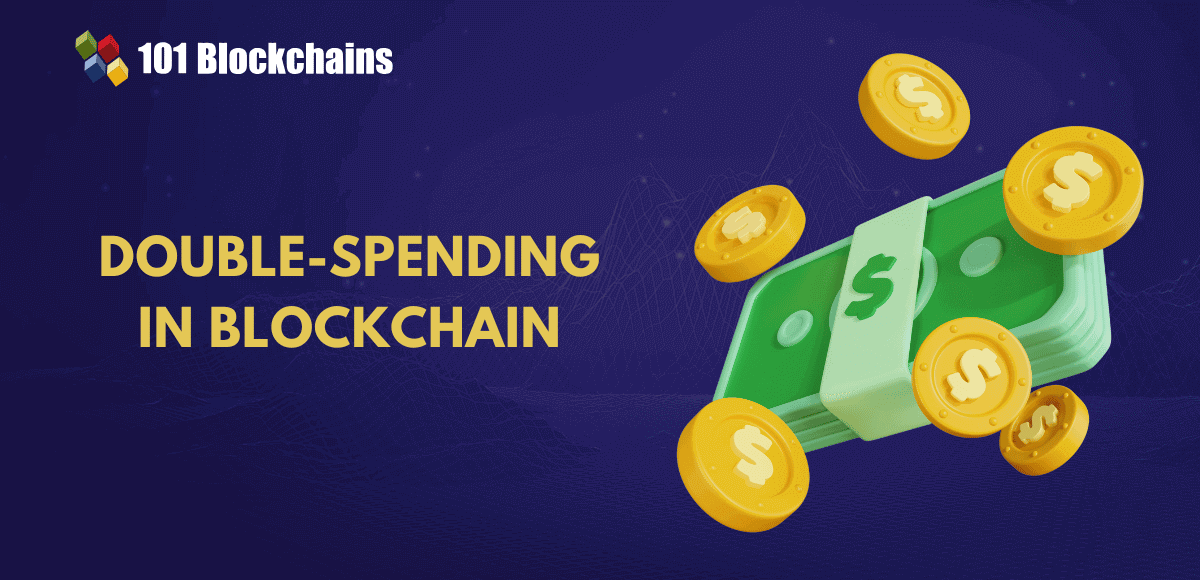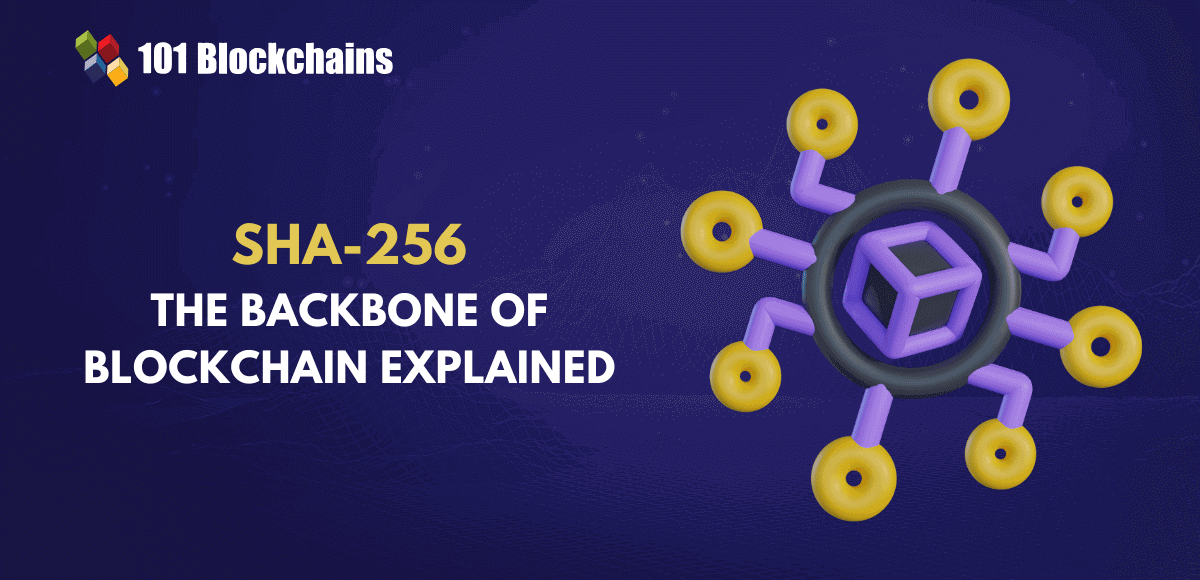Learn how blockchain truly works, master key definitions, and uncover what makes smart contracts so "smart." Dive into the fundamentals, gain valuable insights, and start your blockchain journey today!

Blockchain
101 Blockchains
on October 09, 2021
Top 7 Enterprise Blockchain Business Models
More and more enterprise companies are eager to use blockchain in their business. Let’s discuss some of the top blockchain business models for enterprise companies.
Blockchain has caught the attention of the different industrial verticals out there. Not only is it changing how business functions, but it also enabling innovation to evolve at a rapid pace.
That’s why you will find a lot of companies adopting blockchain. These same companies are also tinkering with blockchain making it more feasible for more mainstream implementation.
With innovation at the forefront, we are also witnessing the rise in the use of blockchain business models. In today’s article, we will be exploring the blockchain business models.
Decentralization has indeed changed how we perceive the problems around us and uniquely solve them. Not only that, but it also opens up a lot of opportunities for businesses out there. So, how do they approach it? The solution is to find the right blockchain business models and implement them correctly.
Build your identity as a certified blockchain expert with 101 Blockchains’ Blockchain Certifications designed to provide enhanced career prospects.
Why Do We Need Blockchain Business Models?
Blockchain itself is a new business model. With blockchain, organizations can turn their business into a decentralization platform, which can alter how their business works. It changes the entities, the flow of transactions, profits, and also ensuring that growth is maintained during the change.
From the advent of bitcoin in 2009, there have been many instances where blockchain failed or at least the blockchain applications failed miserably. It was partially because of how the implementation happened, but it was also because of companies’ flawed business model.
Blockchain-based business models such as The BitConnect business model was nothing but a Ponzi scheme. There are also other models that take advantage of gullible people out there. We will ignore all these kinds of scams and focus solely on legit blockchain business strategy models.
From a technical perspective, we need a blockchain-based business model that improves how businesses work and benefits the end-users.
The blockchain based business model should also start focusing on the entrepreneurs rather than just investors. This will make projects focus on utility rather than value in the market. SuchApp is one of those projects that focus on utility by providing a blockchain-powered messaging platform. This means the blockchain business ideas should work at both the macro and micro level, benefitting the internal company employees as well as the end-users.
Understanding the Traditional Business Model
To better grasp blockchain business strategy models, we first need to learn more about the traditional business model. All the businesses out there that are not using blockchain use, traditional business model.
They essentially provide services or goods and earn profit from there. The consumers buy the product or the service at a prescribed rate.
The rates are set accordingly and consist of all the wages or other expenses that the business has or might have during the process of providing the service or product. Each business has a different way of handling the business. However, they use a basic centralized model.
The model consists of four main entities. It includes the owners or the shareholders, the organization, the customers, and the employees.
Curious to learn how business model innovation can support the growth of your business? Join the Standard & Premium Plans and Enroll Now in Business Model Innovation Course!
The Blockchain Business Model
Please include attribution to staging2.staging2.101blockchains.com with this graphic. <a href='https://staging2.staging2.101blockchains.com/blockchain-infographics/'> <img src='https://staging2.staging2.101blockchains.com/wp-content/uploads/2018/11/Blockchain_Business_Models_new.png' alt='Top Blockchain Business Models='0' /> </a>
A lot of things get changed with the blockchain business model. First of all, it is decentralization, which means that there is no need for a centralized authority. However, that’s not always the case when it comes to blockchain business models.
dApps, for example, provides work directly thanks to peer-to-peer transactions. It removes the need for a central authority and any mediators. The ability to create a trusted network is revolutionary, to say the last.
So, what entities are not present in the dApps implementation? Firstly, there are no employees or shareholders. Secondly, it is not owned by anyone, which makes the business model a lucrative prospect for the users. However, if we go in deep, we may say that users are themselves employees or owners, but their roles and impact are changed drastically in this blockchain model.
Curious to learn about blockchain implementation and strategies? Enroll Now in Blockchain Technology – Implementation And Strategy Course!
Making A Profit
But, how does the above blockchain-based business model make a profit? One way is to use tokens to make a profit. Anyone who helps the blockchain reaches consensus is rewarded with a token that holds value. The value, however, depends on the market condition. Bitcoin, for example, offers miners the chance to make a profit by contributing to the network.
Everything looks great, but what about the organization or business that started the business to earn money? They do so by holding some amount of tokens for themselves.
Initially, the value of the token is set to a predetermined value and is sold to interested investors through ICO. However, the value of the token after being released to the market depends on many factors, including market condition, business valuation, and how the business is doing in the current market scenario.
The crowdfunding process gives the early adopters a chance to invest in the business, giving them a better chance to make profits. During the initial ICO process, the price of the crypto assets or the token is low. This way, the developers or the organization gets the necessary funding to make their project a reality. You can also download and save this guide as a pdf version of the blockchain business model.
Want to become a Cryptocurrency expert? Enroll Now in Cryptocurrency Fundamentals Course
Different Types of Blockchain Business Models
Now that we have established a basic understanding of traditional blockchain models and how the business makes money from them let’s discuss the top blockchain business models or ideas out there.
P2P Blockchain Business Model
The P2P business model offers a peer-to-peer powered business. Blockchain technology has always been peer-to-peer. P2P blockchain enables end-users to interact with each other directly. This makes it part of almost all the other blockchain models we discussed earlier. The P2P business model can be monetized in many ways, including tokens, BaaS, or transaction fees.
IPFS, an interplanetary filesystem, takes advantage of the blockchain business model. Also, there is a mining software that will let users share their unused storage space. You can also download and save this guide as a pdf version of the blockchain business model.
Blockchain As A Service Business Model (Baas)
Blockchain as a service is one of the most popular blockchain business models or ideas out there. It is all about providing an ecosystem for other businesses to manage their blockchain system. In this ecosystem, companies can experiment, test, and do research. Right now, Microsoft (Azure), Amazon (AWS), IBM(BlueMix), etc., offer blockchain as a service (BaaS) and are the perfect example of the decentralized business example.
The end-users (in this case, businesses, startups, or organizations) don’t have to worry about how blockchain works and don’t need to set it up before working on it. BaaS also eradicates the need for hardware, which in turn enables startups, companies, or organizations to focus on their development cycle.
Most of the current blockchain solutions, including Bitcoin and Ethereum, can be served as a service. One such example includes EBaas, Ethereum Blockchain as a Service (EBaaS). The service is managed and provided by Microsoft in collaboration with ConsenSys.
Start learning Blockchain with the world’s first Blockchain Expert Career Path and become a Blockchain Expert!
Token Economy – Utility Token Business Model
The utility token business model is prevalent in the industry. We have also discussed earlier in the post where we try to understand a blockchain business model through the utility token business model’s eyes. Currently, there are tons of startups, businesses, or eCommerce sites that use a utility-based blockchain model. Ripple is also a utility token as it powers the network and facilitates the network activities in one way or another.
Businesses hold some of the utility tokens and release the rest for network functionality. They make a profit when the value of the utility token changes. The idea of working with tokens can be summarized with the word “Tokenomics.”
The token utility should have three valuable variables. For example, it should have a proper role, features, and purpose.
Blockchain-Based Software Products
The concept of blockchain was introduced in 2009. However, now, the need for blockchain is more than ever. This means that the big old players have to adopt blockchain sooner.
The easiest way for cooperates to do so is to buy a blockchain solution and integrate it into their system. This gives rise to the blockchain companies that create a solution and then sell them to bigger companies. Proving blockchain technology to other organizations can be extremely profitable as they will not only get reasonable payment upfront. Moreover, they will also need to provide support after implementation.
Another potential reason for acquiring a blockchain-based software solution is the lack of talent in the market. Companies don’t want to go through the process of acquiring talent. That’s why it is much easier for them to buy a blockchain solution that fits their requirement.
Start your blockchain journey Now with the Enterprise Blockchains Fundamentals – Free Course!
Development Platforms
The overall idea of blockchain is still in its native stage. A lot of development and research goes into the blockchain as startups are trying to solve problems uniquely. This leads us to our next decentralized business model, known as development platforms.
Companies nowadays are now focusing on developing apps that can result in a blockchain infrastructure. Those apps can be served using blockchain and cloud to the end-user providing rapid development.
Hyperledger is one of those examples which provides tools, frameworks, and guidelines for blockchain development. The key here is rapid development, and they are trying to do just that.
Network Fee Charge
Another very blockchain business model is to have a network fee associated with the blockchain itself. This type of blockchain business model applies to both blockchain solutions such as Ethereum or dApps that charge a small amount for the user for different activities on the network. For example, the Ethereum network charges developers Ethereum for making their dApp live. The same is valid for NEO, which has a fee for dApp publication.
Excited to learn the basic and advanced concepts of ethereum technology? Enroll Now in The Complete Ethereum Technology Course
Blockchain Professional Services
The last blockchain business model that we are going to discuss is Blockchain professional services. These services are provided by leading expert development companies to startups or other businesses to get them ready with blockchain.
For example, a business would want someone to build their custom blockchain project. In that case, they can hire companies such as Deloitte, IBM, or others to complete the project for them.
The key here is to not invest in the hardware, software, or team building but to directly take the services of companies that have perfected the art of blockchain development. You can also find smaller players in this market.
Overall, it is a great blockchain business model for talented blockchain professionals who want to use their skills to do business.
There are other forms of blockchain professional services as well. For example, many blockchain-powered companies offer blockchain-related services such as consulting, developing legal papers, or auditing the business.
Aspiring to make a lucrative career as a blockchain expert but not sure how? Check the detailed guide Now on How To Become A Blockchain Expert
Concluding Thoughts
In short, a blockchain company generally makes money using one of the following methods. Let’s discuss them below one by one.
- Network Fee: The company or organization makes money by imposing a network fee.
- Token Economy: Utility tokens are used for performing different activities on the network. It is a crypto asset that the users need to buy.
- Blockchain-Based Software Products: Blockchain companies can also make money by providing their solution to other companies.
The business model can also be a combination of different ideas, and it completely depends on what the business wants to do. There is no hard and fast rule on how a business model should function. Companies or organizations are free to experiment the way they want.
If you want to know more about blockchain business processes, then we recommend enrolling in our free blockchain course. Start your blockchain journey right now!
*Disclaimer: The article should not be taken as, and is not intended to provide any investment advice. Claims made in this article do not constitute investment advice and should not be taken as such. 101 Blockchains shall not be responsible for any loss sustained by any person who relies on this article. Do your own research!








1 Comment
Your Comment
Great article from a perspective of sort of solution providers but I could’t get a clue from a existing business point view .
For example, Is it necessary to convert a current business model into a model adopting blockchain so om.
And practical business models for existing players…
Anyway. Great article.. Thanks